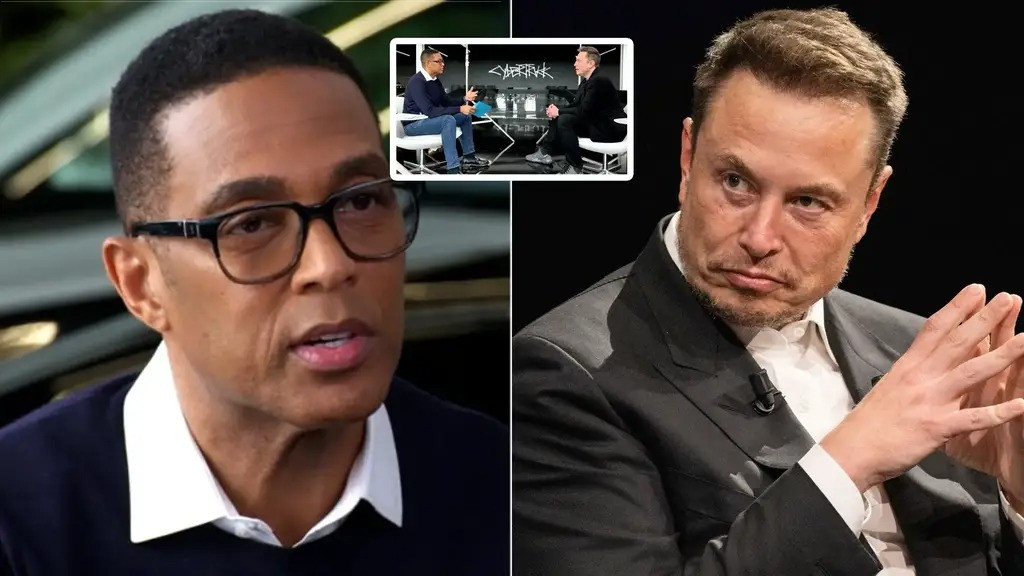
In a groundbreaking development shaking both the technology and media realms, Elon Musk, the enigmatic figure behind the social media platform X (formerly Twitter), has taken the unprecedented step of barring Don Lemon, the former CNN anchor, from the platform following a contentious interview. This bold move highlights the tension between Musk’s avowed stance as a “free speech absolutist” and the pragmatic challenges of overseeing discourse on a platform that prides itself on unrestricted expression.
The genesis of this controversy lies in an interview conducted for the inaugural episode of “The Don Lemon Show” on X. Musk, renowned for his ventures in space exploration with SpaceX, electric vehicles with Tesla, and now social media with X, found himself in disagreement with Lemon during their dialogue. While Lemon maintained that the conversation, though confrontational, was beneficial for public discourse, Musk appeared to dissent. Subsequent to the interview, Lemon hinted at Musk’s disapproval on X and declared his intention to broadcast the interview on alternative platforms such as YouTube and podcasts, provocatively insinuating that Musk’s commitment to free speech wavered under personal scrutiny.
Musk’s response, while not directly addressing the interview, culminated in a decisive action: the banning of Don Lemon from X. The platform tersely stated it had “opted against a commercial partnership with the show,” a euphemism for Lemon and his content no longer being welcome. This decision has ignited a flurry of debate concerning the boundaries of free speech, the duties of platform owners, and the power dynamics when media figures clash with tech titans.
Central to this controversy is the inquiry into what constitutes free speech in the digital era. Musk, who acquired X with pledges to transform it into a haven for uninhibited expression, faces allegations of hypocrisy. Critics argue that barring Lemon due to the content of an unaired interview contradicts Musk’s advocacy for free speech, suggesting that his commitment to the principle may be more conditional than absolute.
However, supporters of Musk’s decision contend that as X’s owner, Musk possesses the prerogative to curate the platform’s content and partnerships as he deems fit, particularly when they believe an interview could potentially damage the platform’s reputation or Musk’s personal image. They view the action not as stifling free speech but as a business judgment within Musk’s rights to exercise.
The expulsion of Don Lemon from X has sparked a broader discourse about the platform’s trajectory under Musk’s leadership. With plans to introduce new content collaborations and shows featuring personalities like Tulsi Gabbard and Jim Rome, X stands at a crossroads. The challenge lies in harmonizing Musk’s vision of a platform free from conventional content moderation policies with the imperative to maintain a respectful and constructive discourse environment.
Moreover, this incident prompts reflection on the future of journalism and public conversation in an era dominated by billionaire-owned media platforms. The ability to silence or amplify voices can profoundly shape public perception and discourse, making the management of platforms like X a matter of public concern.
Beyond the Musk-Lemon clash specifics, this controversy underscores the evolving nexus between tech behemoths and the media. As tech entrepreneurs like Musk venture into media ownership and content curation, the demarcation between technology and journalism blurs, presenting fresh challenges for free speech, editorial autonomy, and platform owner accountability.
Elon Musk’s decision to ban Don Lemon from X epitomizes a critical juncture in the ongoing discourse on free speech, media autonomy, and the obligations of those wielding substantial influence over public platforms. As we progress, the actions of individuals like Musk and the reactions from the public and media will continue to delineate the contours of our digital landscape. Striking a balance between fostering free expression and upholding a space conducive to constructive, respectful dialogue will be pivotal in shaping the digital society we aspire to cultivate for future generations.

Leave a Reply